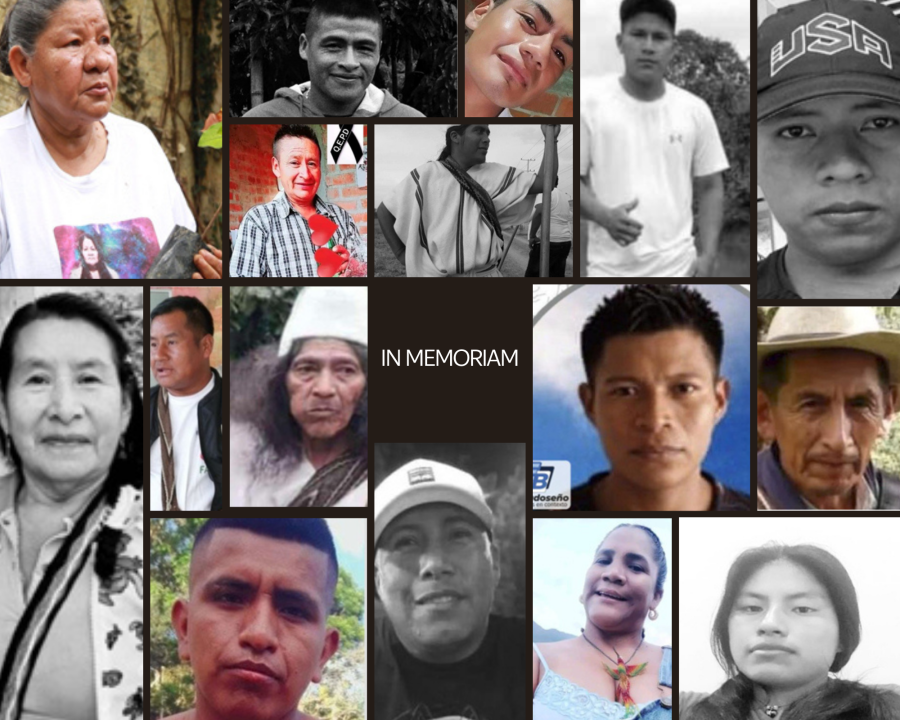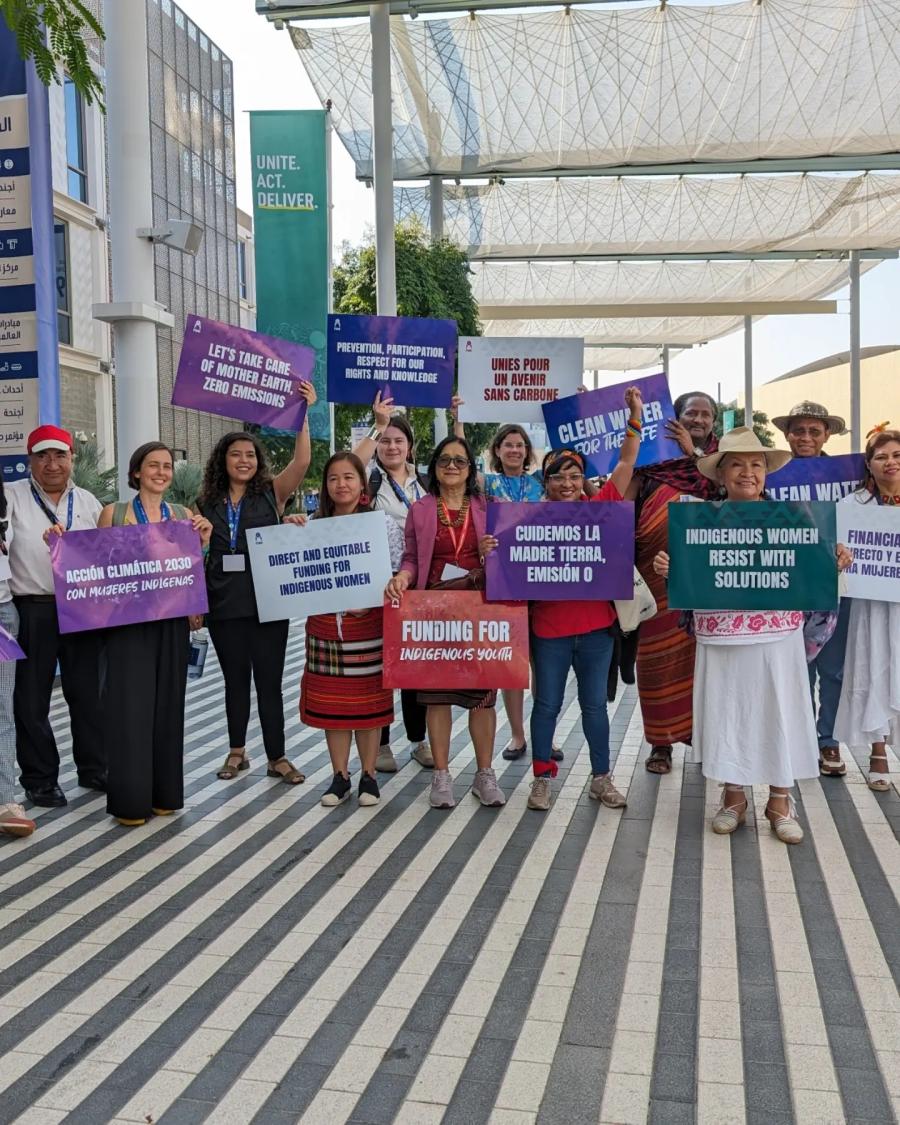With this issue of Cultural Survival Quarterly we pay tribute to the organization’s executive director, Ellen Lutz, who stepped down for health reasons on August 1. When she arrived at Cultural Survival in 2004, she brought with her an unbeatable combination of talents, including a master’s degree in anthropology and an impressive background as a human rights lawyer. The latter experience included running the Center for Human Rights and Conflict Resolution and a long stint as California director of Human Rights Watch. She also taught human rights law at Tufts University. Cultural Survival’s previous directors had been anthropologists with a concern for the rights of Indigenous Peoples, but Ellen was the first one to bring expertise in human rights law, and she quickly reset Cultural Survival’s priorities to head in that direction.
She steered the organization away from sponsoring “special projects,” which were freestanding work by anthropologists, activists, and others outside of Cultural Survival’s staff. Many of these projects involved various aspects of development, and Ellen made it clear that she did not want Cultural Survival involved in that sort of work. “Development work like building schools, digging wells, and providing services is what governments should be doing,” she said on more than one occasion.“Our work is to make sure governments live up to their obligations.”
While narrowing the organization’s focus, she expanded its programs, including launching the Guatemala Radio Project and the Endangered Native American Language Project, the latter bringing Cultural Survival’s work to the United States for the first time. She also had the organization take on its first legal case. It challenged the brutal and illegal methods used by an American energy company building a hydroelectric dam to remove Indigenous Ngöbe people from territory. Ellen visited the remote Ngöbe villages, learned their circumstances, and, in partnership with them, submitted a petition to the Inter-American Commission on Human Rights. She has pursued that case through the Inter-American system over the past two years, and the case will soon be handed up to the Inter-American Court for Human Rights.
Another of Ellen’s groundbreaking initiatives was submitting reports to the new UN Human Rights Council. That body reviews each country’s human rights record every four years, but Indigenous rights usually are not considered, so Ellen decided that Cultural Survival should submit “shadow reports” about each country’s treatment of its Indigenous citizens. One of those reports, on Japan’s Ainu people, not only was taken into consideration by the council, but also quoted in its final recommendations for the country. Japan later implemented many of those recommendations.
Ellen took this kind of direct government engagement one step further this year when she worked with Congressman James McGovern, the co-chair of the Tom Lantos Human Rights Commission, to host a series of congressional hearings on the effects of U.S. foreign policy on Indigenous Peoples.
Perhaps the most dramatic change in Cultural Survival under Ellen’s leadership was the merger last year with Global Response, a Colorado-based nonprofit that conducts international letter-writing campaigns on behalf of Native communities facing environmental damage from extractive industries. That merger, which made Global Response a program of Cultural Survival, substantially increased both organizations’ reach and impact, and doubled the number of supporters. Even more significant, in January, Ellen urged the director of Global Response, Paula Palmer, to travel to Kenya to conduct an extensive human rights investigation of police atrocities committed against Samburu communities. The report from that investigation prompted a halt to police actions and a promise to prosecute offenders—a first for Kenya.
Beyond the programmatic changes, Ellen pushed very hard to have Cultural Survival move toward more Indigenous involvement in the organization itself. She prompted a significant increase in the number of Indigenous board members and Cultural Survival staff members, aiming for a 50/50 mix of Indigenous and non-Indigenous representation. And those Indigenous board members have included international luminaries, including the chair of the UN Permanent Forum on Indigenous Issues, the chair of the Indigenous Peoples’ Caucus, and the principal defender for the Special Court for Sierra Leone. “From the beginning,” says Cultural Survival board vice-chair Richard Grounds, “she was very clear about directly engaging Indigenous communities in terms of their concerns, their input, and their involvement with programs, not only on the receiving end, but making decisions and participating in the work of Cultural Survival. That way of going about the work has really revolutionized the organization.”
Just as important as the structural and operational changes Ellen has introduced has been the effect of her personality. It would be hard to quantify the degree of passion she has for justice or her ferocious drive in pursuit of it. She worked long hours at the office every day, then went home and worked several more hours, swallowing books and academic papers whole, corresponding with Indigenous leaders, and using the phone to pressure decision makers to do the right thing. Every person on staff was pulled into the slipstream of that passion, inspired to take on ever-greater challenges and fight even harder for Indigenous rights. Her zeal and natural warm-heartedness is combined with a legal rigor that makes her a truly formidable advocate. Her friends and colleagues are among the world’s preeminent legal scholars and human rights leaders, and her most recent book, Trying Heads of State, is considered cutting-edge work.
In fact, the force of her personality is so present that it is sometimes hard to remember just what things were like before she arrived. As long-time former board chair Ranganath Nayak recently put it, “By 2003, we had gone through a number of executive directors, ranging from well-intentioned but ineffectual to downright destructive. The organization was in a shambles. Those were the days when we would arrive at a point in the spring of every year when we would talk of large cuts in costs in order to survive, with bankruptcy staring us in the face, and we went through one near-death experience after another. The board launched a search, helped on a pro-bono basis by Cary Morrill. She submitted to the search committee Ellen’s résumé, with the comment, ‘She is much better as a leader than you would assume from this [highly academic] résumé. You really must meet her.’ Today we are in decent financial shape for the first time in memory. Membership is up, the bazaars are doing well, and donors, large and small, are stepping up to the plate.”
“Ellen has brought a remarkable level of leadership to Cultural Survival over the past six years,” said Sarah Fuller, the organization’s current board chair. “Ellen has brought her energy, intellect, and enthusiasm, and her passion for justice and fairness to numerous issues, including the support of the UN Declaration on the Rights of Indigenous People, land sovereignty violations in Panama, freedom of Indigenous expression through a network of over 200 local radio stations in Guatemala, a burgeoning Native American language revival, and an expanding presence in environmental advocacy. Throughout her illness, she has been extraordinary in this most difficult of times. Every nonprofit rises and falls on the quality of its executive director. Simply put, Cultural Survival owes its strong position today in large part to Ellen. On behalf of the board, I extend our many thanks—such a small word for her oversized contribution to us and the world around us, which Ellen simply made better.”



